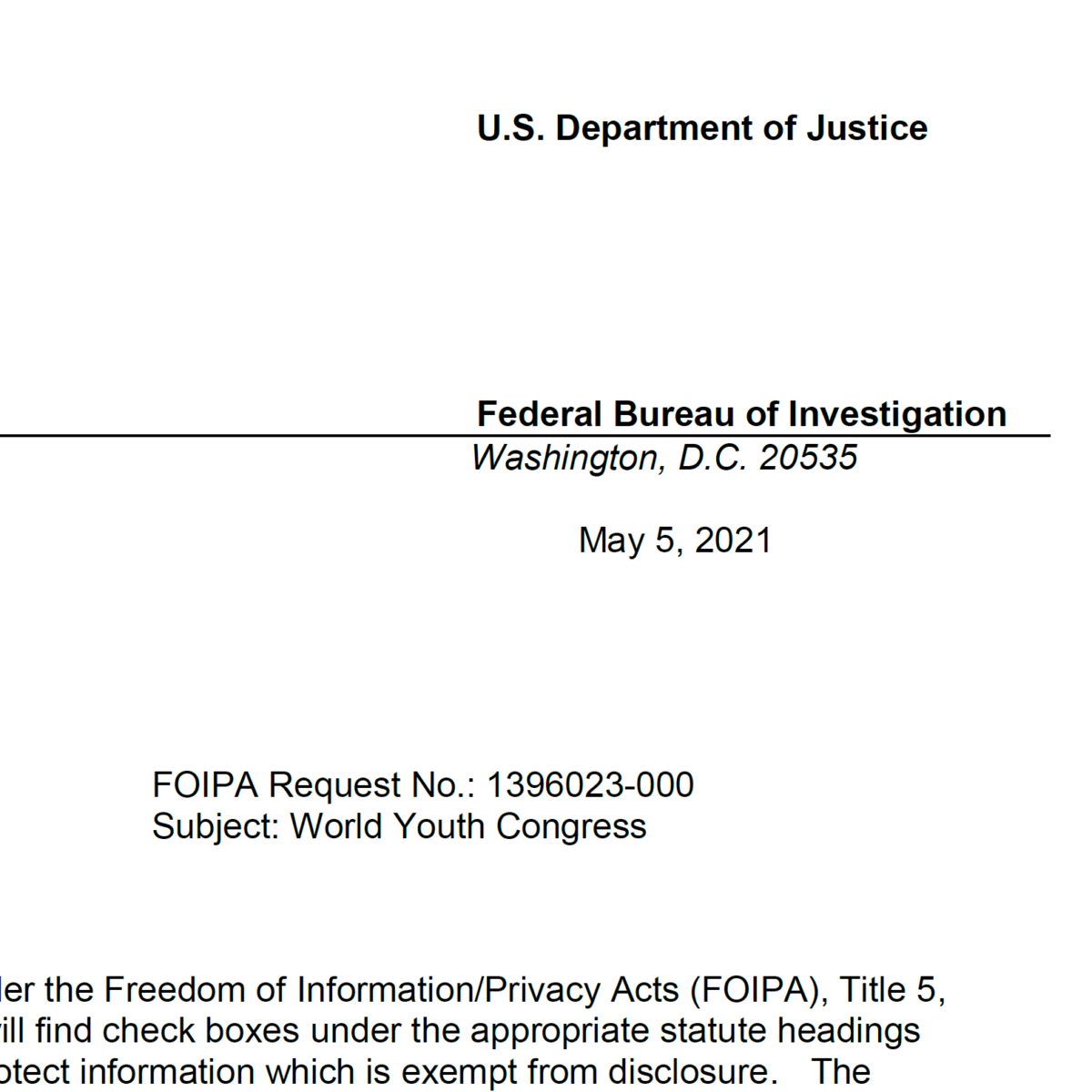About a month ago, I received my first ever government documents via the Freedom of Information Act. They were the result of a FOIA request that I originally submitted while working on my World Youth Congress Movement project in grad school. The documents were not directly relevant to the WYCM, but focused on similar post-war organizations, in this case the International Union of Students, which was being investigated for communist activity. I submitted the request based on a single line of text describing the contents, and while I wasn’t hopeful about what I would receive–or when–I thought it worth a shot.
I submitted the original request three years ago. In that time, I finished the research, graduated with my master’s degree, lived through a global pandemic, and have had the revised paper accepted for publication. Academic research is a marathon, but it makes me wonder how many FOIA documents go underutilized by the time they reach the researcher.
On the other hand, the pandemic likely contributed to the delay and it’s still really cool to receive hundreds of pages of FBI documents however long it takes. For as opaque as our government can be, it’s a testament to our relative openness that any person can file a FOIA request and eventually hear back. And the archivists who balance national security with transparency deserve genuine gratitude for their persistent work through a never-ending backlog of requests, some crucial to the work of government accountability and others submitted on spurious grounds.
On a related note, BuzzFeed recently received a number of Fauci’s emails from early in the pandemic via FOIA. The ones released so far are pretty mundane, but more will be released eventually. Much of the information will be shielded on national security grounds, but even so we will eventually get a better understanding of what went right and what went wrong thanks in part to FOIA and the civil servants who make it work.
